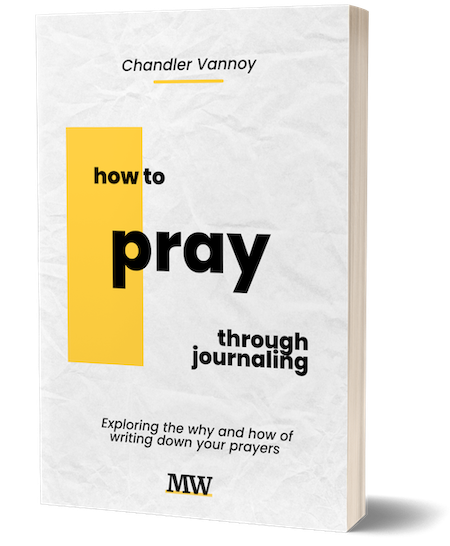
Every January, I see so many people post about their ambitious goal to read the entire Bible in a year with a great, new reading plan, and if you accomplish that feat, props to you. Because the majority of people burn out and don’t make it past mid-January before they are multiple days behind and feel defeated.
I fall into the category of the majority. I’ve done so many Bible reading plans, and more often than not, I find myself simply reading to check the task off my daily to do list. Yes, reading the Bible in a year is a great thing to do, and I’ve done it a few times, but more often then not, I get behind, read sporadically, and when I do read, it feels rushed and crammed into my schedules. Sadly, I end up missing the point entirely.
That’s why I believe we need to change our goal and refine it to simply be: spend meaningful time with God every day.
Instead of just reading to stick with a plan, I believe it is essential for us to spend time praying before we read and spend time reflecting after we read.
One of the best ways to do both of these things is through journaling.
Now there are many different ideas to what journaling can be, but I think Don Whitney gives us a clear explanation as to what journaling should be in his book Spiritual Disciplines for the Christian Life when he says:
“A journal is a place (tangible or digital) in which a person records information important to him or her personally for preservation or consideration. As a Christian, your journal is a place to document the works and ways of God in your life. Your journal also can include an account of daily events, a record of personal relationships, a notebook of insights into Scripture, and/or a list of prayer requests. Spontaneous devotional thoughts or lengthy theological musings can be preserved there. A journal is one of the best places for charting your progress in the other Spiritual Disciplines and for holding yourself accountable to your goals.”
Hopefully, you read that description and see that the idea of journaling is not that intimidating. In fact, it is extremely easy to get started. It doesn’t have to fit any particular formula. It is simply a place for you to document the works and ways of God in your life. There will be a follow-up post to this one to share a few practical ways to keep a journal, but let’s start with why we should journal.
Here are 5 reasons why Christians should journal this year (and really every year):
1. Journaling keeps Scripture with us throughout the day.
Our time thing about Scripture is not meant to only be for 15-20 minutes a day. We see in Scripture over and over again that we should be storing God’s word in our heart (Psalm 119:11). In the Old Testament, the Israelites are commanded to repeat God’s Word to their children. To talk about it when they sit in their house, when they walk along the road, when they lie down, and when they get up. They were to bind it as a sign on their hands and foreheads. They wrote Scripture on their doorposts and city gates. They took Scripture with them everywhere they went. In the same way, Christians are called to be meditating on Scripture and taking it with us wherever we go, and this only happens when we think deeply about what we read. This is why Morning Word is designed to encourage readers to choose a verse, word, or phrase and answer on 3 questions about it. I’ve always included a note that I highly recommend using a journal for the Reflection section because when we write about Scripture in the morning, it will be on our minds for the rest of the day.
2. Journaling records a testimony of God’s faithfulness in our lives.
One of my favorite things about journaling is looking back and seeing God’s hand working in my life, even when I didn’t realize it at the time. I use an app called Day One to journal, and each day, it shares an “On This Day” notification that points me back to my journal entry from a year ago. As I go back and read these entries, I’m reminded of how God has worked in my life in the past. It reminds me of the prayers that He answered. It reminds me how He was faithful in the unknown moments. It reminds me that even when I felt He was far away, he was incredibly near. And it reminds me that no matter how nervous and anxious I felt in the moment, He was faithful. When we write down how God moves in our life, it allows us to look back on his faithfulness and remember that his track record is proven.
3. Journaling prompts us to think more deeply about God.
Jonathan Edwards once said that “seeking the kingdom of God is the chief business of the Christian life.” So how do we seek after God? Scripture tells us we do so by renewing our minds and thinking deeply about the things of God (Romans 12:1-2). This means it is not enough just to be around the things of God, but we must think deeply about and meditate on the things of God. This is when heart change occurs. As the old, simple adage says, “We become what we behold.” What absorbs our interest, what we give our attention to most, shapes our thinking and trains our habits. When we think deeply about God, not only will our understanding of him grow, but so will our habits of Godliness. On top of this, we tend to feel most deeply about what we think most deeply about. So if you feel you are distant from God, or if you do not have a deep desire to obey him, journaling is a great way to remedy this.
4. Journaling grows our self-understanding and evaluation.
John Calvin, in his famous book Institutes, wrote, “Without knowledge of self there is no knowledge of God.” These two are deeply connected, and journaling gives us the means to be able to grow in both at the same time. When we journal, it allows the Holy Spirit to grow us in self-understanding by showing us areas of sin in our life, gifts that we have been given, insight into how we are wired, understanding of our past, and on and on we could go. Journaling is like a mirror to our soul to which we more clearly see our attitudes, thoughts, words, and actions. 2 Corinthians 13:5 reminds us, “Test yourselves to see if you are in the faith. Examine yourselves.” As helpful as the tests like the Enneagram are to understanding ourselves, spending time with God through journaling is far more helpful since we are interacting with the Holy Spirit, not just a man-made personality test.
5. Journaling gives words to our feelings and feelings to our words.
It is common for us to feel something deeply but not have the words to express it. Journaling allows us to process on paper what we are wrestling with internally. Romans 8:26 tells us “the Spirit helps us in our weakness. For we do not know what to pray for as we ought, but the Spirit himself intercedes for us with groanings too deep for words.” When we are journaling and writing down our thoughts and prayers, we will find the Spirit gives us words that we could not find on our own. This type of understanding only comes through quiet, deep reflection with the Lord. On the flip side of this, there have been times where we have expressed something with words that we do not understand how we feel about it. It could be that we said something hurtful to someone, and we didn’t realize it came from a hidden feeling of betrayal. Journaling gives us the intentional time to spend with the Lord and think deeply about both our words and feelings.
One of the hardest parts of journaling is actually getting started. So let me encourage you to simply start. It doesn’t have to be perfect. It doesn’t have to be a well-written novel. It can start out as a few words. Just begin to document the works and ways of God in your life.




